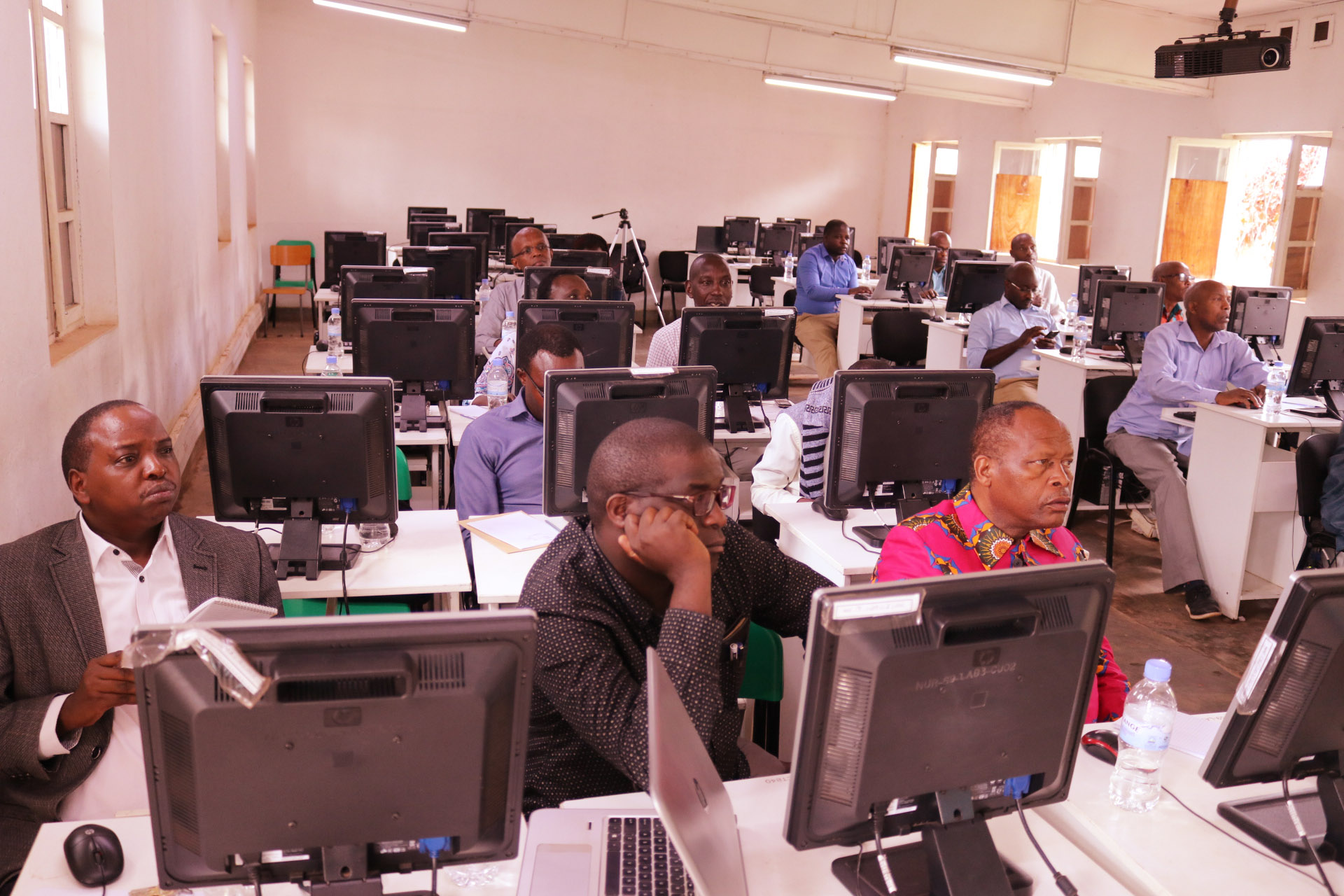
UR-Sweden Symposium showcases innovation-driven solutions to Rwanda’s pressing challenges
- 13-06-2025
- 361
The University of Rwanda has invested in the capacity building of its academic staff in order to enable them to shift from the traditional chalk and board method of teaching to e-learning method. In this regard, a series of training sessions on Moodle and Turnitin has been organized for all UR Colleges academic staff championed by the University of Rwanda’s Centre for Open and Open e-Learning (CODeL), located at the College of Education. This time, a three-day training workshop of the kind was organized for UR-CASS academic staff from 8th to 10th May 2019 , funded by the UR Sweden Program.
Facilitators in the training included CODeL e-Learning Officers namely ; Mr. Ntabomvura Leon, Mr. Uwizeye Jean Claude and Dr. Theoneste Umumararungu who is a CODeL Champion and a lecturer at UR-CMHS.

Participants during the training
The Facilitators’ team introduced the participants into the main features of Moodle interface and guided them along practical works designated to enable them to create online courses, upload different formats of files on the UR e-Learning Platform, initiate online collaboration, create learning activities, and assess students, among others.
In addition, participants were initiated into the use of Turnitin which is a popular plagiarism-detection software and they were called on to uphold academic integrity fighting against plagiarism in scientific papers and research dissertations.
Mr. Ntabomvura took the participants through the guidelines for designing content and format to be uploaded on Moodle. ‘’ When preparing a chapter to be uploaded on the e-learning platform, there is a need to figure out and/or write down learning objectives associated with each chapter. The chapter specific objectives are a reference for students and the lecturer to judge whether learning has happened or not. Bloom taxonomy theory has to be referred to, ‘’ he noted.
He stressed that the physical absence of the classroom creates a gap that should be filled by the way the module designers communicate (in writing) to the learners. ‘’ The online teaching and learning does not mean that teachers are absent from class. In e-learning environment, the teachers learn together with students and play a key role in stimulating learning and engaging students,’’ he said.
Dr. Celestin Ndikumana, a participant in the training who was interviewed, noted ; ‘’ I can really say that the outcome of the training has even gone beyond my expectations, because at the moment I really have a lot of knowledge that I have gained from the training.’’
‘’ This training is very useful, and I would recommend that it reaches most people at University so that we can have the same understanding on the use of both Moodle and Turnitin for the purpose of helping our University to grow and to help our students to gain much knowledge, ‘’ Dr. Ndikumana added.
Another interviewee by the name of Gloriose Mugirase said ; ‘’I did not know what Moodle was. I did not know what it meant, but now I know what it is. I can for example design my course in Moodle and share it to my students. I can also send assignment in Moodle to my students. They will do it and send it back to me also in Moodle, because I will have to enroll them in order to have access to my account’’.
The Center for Open and Distance e-Learning has been created in College of Education with the intent to promote and to lead Open and Distance e-Learning in UR Colleges.

Pose for group photo between the participants and the facilitators
Story by
NTIRANDEKURA Schadrac
Public Relations and Community Engagement Officer
University of Rwanda-College of Education